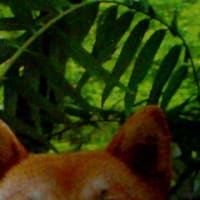
(;・ω(;・ω(;・ω(;・ω・;)ω・;)ω・;)ω・;)
?w(; ゜ω゜)))w ?(;・ω・;)? w((( ゜ω゜;)w?
~~且_(~-~ )且?( -〒- )?且( ~-~)_且~~
?((((;・ω・) ―――― * ―――― (・ω・;))))?
? 。。((。-ω\) … (/ω-。))。。?
?(\;Y;/)?(\;Y;/)?(\;Y;/)?
?〇o。(;´ω`)?(;´ω`;)?(´ω`;)。o〇?
?(・ω・;)?(;・ω・;)?(;・ω・)?
as evidence for Human rights .......
http://headlines.yahoo.co.jp/hl?a=20080219-00000000-yom-soci
ミャンマー少数民族、母国「国民でない」…強制送還できず
2月19日3時1分配信 読売新聞
無国籍状態のまま日本で暮らすミャンマーの
イスラム系少数民族「ロヒンギャ族」の数が増えている。
難民と認定されずに強制退去処分を受けても、
母国で「国民」として扱われていないため、送還が出来ないからだ。
日本に在留するロヒンギャ族の数は既に150人に上るという。
行き場のない少数民族への対策は手詰まり状態で、支援を続ける関係者らは「せめて在留特別許可を与えてほしい」と訴えている。
「私たちが信仰を理由に
母国で迫害されていることを分かってほしい」。来日して7年。群馬県館林市に住む同民族の男性(36)は、こう訴える。
ロヒンギャ族は主にミャンマー西部に居住する
イスラム系少数民族で、
仏教徒が国民の約9割を占めるミャンマーでは
「異端」とされてきた。在日ビルマ人難民申請弁護団によると、1982年の新国籍法で
国民と認められなくなり、国連など
の ♪♪♪
調査で
も ???????
社会生活で様々な差別を受けていると報告されている。
同弁護団によると、軍事政権の迫害が激しくなった91年以降、
迫害を逃れて大量のロヒンギャ族が国外脱出を図り、日本への入国者も2004年ごろから増え始めた。偽造パスポートで不法入国するケースが多いという。来日後、難民申請しても認められた例は10件に満たず、
ほとんどが強制退去処分を受けている。
ところが、強制退去処分を受けた後、本国に戻された人はいないという。同弁護団の渡辺彰悟弁護士は
「母国で紛争が続くスーダン人など人道的な理由で送還されないケースはあるが、
母国が国民と認めないため送還ができないというのは、
非常に特殊だ」と指摘する。
難民認定を求めて訴訟を起こした例は少なくとも6件あるが、認められた例は3件だけ。残る3件では、「差別はあるが、厳しい虐待を受けていない場合もある。ロヒンギャ族だからというだけで迫害されるとはいえない」などの理由で棄却されている。
強制退去処分を受けた外国人は、
送還されるまで入管施設に収容されるが、
住居や
行動範囲を
制限した上で仮放免が認められること
も ♪♪♪
ある。
ロヒンギャ族の多くはこの仮放免の資格で日本に滞在している。
在日ロヒンギャ族の約9割は館林市周辺に集まり、家電や自動車の工場でアルバイトをして暮らす。2年前、数人のグループが同市内に一軒家を購入し、礼拝のための
「モスク」に改造した。毎週日曜日の夜には20~30人が集まり、礼拝後、日常生活の様々な問題を相談し合っている。
在日ロヒンギャ族への対応について、入管当局は「個別のケースについては答えられない」としているが、同弁護団は
「一刻も早く安定した身分を与えるべきだ。難民認定できないなら、在留特別許可を認めてほしい」としている。
ロヒンギャ族の送還問題について、在日ミャンマー大使館は
取材に対し ♪
「現段階では答えられない」としている。
最終更新:2月19日3時1分
Yahoo!知恵袋に質問する 関連トピックス出入国管理 アフリカ
この記事を読んでいる人はこんな記事も読んでいます
報ステ・古舘氏「アダルトチルドレン」発言で謝罪(産経新聞) - 15日(金)0時3分 <性同一性障害>「就職内定取り消しは違法」と損賠提訴(毎日新聞) - 13日(水)11時13分 韓国から送還の北朝鮮住民22人全員処刑か、消息筋(YONHAP NEWS) - 18日(月)11時35分
前の記事:国側が弁論再開申し立て=「新基準策定後に」-原爆症訴訟・長崎(時事通信) - 3時1分
次の記事:<ポリ容器漂着>韓国に原因究明要請 環境省(毎日新聞) - 2時33分関連記事4件
http://en.wikipedia.org/wiki/Rohingya
Rohingya people
From Wikipedia, the free encyclopedia
(Redirected from Rohingya)
Jump to: navigation, search
This article may require cleanup to meet Wikipedias quality standards.
Please improve this article if you can. (November 2007)
This article or section needs copy editing for grammar, style, cohesion, tone or spelling.
You can assist ♪♪♪♪♪♪♪
by editing it now. A how-to guide is available.(February 2007)
Rohingya
Total population
3 Million, Est [1]
Regions with significant populations
Myanmar (Arakan)
Bangladesh, Pakistan, UAE, Saudi Arabia
Language(s)
Rohingya language, Burmese language
Religion(s)
Sunni Islam
Related ethnic groups
List of ethnic groups in Burma
The Rohingya are
a minority Muslim ethnic group
in Northern Rakhine State, Western Burma.
The Rohingya population is mostly concentrated in five northern townships of Rakhine State (formerly known as Arakan): Maungdaw, Buthidaung, Rathedaung, Akyab, Sandway, Tongo, Shokepro, Rashong Island and Kyauktaw.
Contents [hide]
1 History
1.1 Human rights violations
1.2 Refugees
2 Culture
3 See also
4 References
5 External links
[edit] History
The Rohingya ethnic group has a history in Arakan State back from
the beginning of
7th century of the Arab Muslim traders,
who settled in Arakan. The Rohingya have been settling in Arakan from long before
the British occupation
of the country. In fact the forefathers of Rohingyas had entered into Arakan from time immemorial. The Burmese ruling junta do not know, or pretend not to know
that the Rohingyas have
a long history, a language, a heritage, a culture and a tradition of their own
that they had built up in Arakan by their long and historic settlements.
In fact the Rohingya have been settling in Arakan for more than a thousand year.
In order to know and understand the full context of the Rohingya problems,
it is necessary to know
the geographical location, the population, the historical background and culture, ethnic origin, chronology of activities of Rohingya nation.
People is often cited
as evidence ???
for this. U Nus democratic administration
also did recognize them
and there was a Radio Programme for Rohingya.
… 中略 …
[edit]
Human rights ♪
violations
According to
Amnesty International,
the Rohingya people have continued to suffer
human rights ♪♪♪
violations under the Myanmar junta since 1978, and many have fled to neighbouring Bangladesh as a result:[2]
The Rohingyas’
freedom of movement is severely restricted
and the vast majority of them have effectively been denied Myanmar citizenship.
They are also subjected to various forms of extortion and arbitrary taxation; land confiscation; forced eviction and house destruction; and financial restrictions on marriage.
Rohingyas continue to be used as forced labourers on roads and at military camps,
although the amount of forced labour in northern Rakhine State has decreased
over the last decade.
In 1978 over 200,000 Rohingyas fled to Bangladesh, following the ‘Nagamin’ (‘Dragon King’) operation of the Myanmar army.
Officially this campaign aimed at scrutinising each individual living in the state, designating citizens and foreigners in accordance with the law and taking actions
against foreigners
who have filtered into the country illegally.
This military campaign directly targeted civilians, and resulted in widespread killings, rape
and destruction of mosques
and further religious persecution.
During 1991-92 a new wave of over a quarter of a million Rohingyas fled to Bangladesh.
They reported widespread forced labour, as well as summary executions, torture, and rape.
Rohingyas were forced to work
without pay ???????
by the Myanmar army on infrastructure and economic projects,
often under harsh conditions.
Many other
human rights ♪♪♪
violations occurred in the context of forced labour of Rohingya civilians by the
security ♪
forces.
… 中略 …
Religion is particularly important to the Rohingya people,
who are predominantly Muslim.
There are mosques and religious schools
in every quarter and village.
Traditionally, the men pray in congregation, while women pray at home.
It is common for elderly Rohingya men to grow beards, and for women to wear the hijab.
… 中略 …
Categories: Cleanup from November 2007 | All pages needing cleanup | Wikipedia articles needing copy edit from February 2007 | All articles needing copy edit | Ethnic groups in Burma | Indo-Aryan peoples | Muslim communities
Easy + Joy + Powerful = Mahoo! Bookmarks x Toolbar
HSIUT R派 複伏福歓拝
?w(; ゜ω゜)))w ?(;・ω・;)? w((( ゜ω゜;)w?
~~且_(~-~ )且?( -〒- )?且( ~-~)_且~~
?((((;・ω・) ―――― * ―――― (・ω・;))))?
? 。。((。-ω\) … (/ω-。))。。?
?(\;Y;/)?(\;Y;/)?(\;Y;/)?
?〇o。(;´ω`)?(;´ω`;)?(´ω`;)。o〇?
?(・ω・;)?(;・ω・;)?(;・ω・)?
as evidence for Human rights .......
http://headlines.yahoo.co.jp/hl?a=20080219-00000000-yom-soci
ミャンマー少数民族、母国「国民でない」…強制送還できず
2月19日3時1分配信 読売新聞
無国籍状態のまま日本で暮らすミャンマーの
イスラム系少数民族「ロヒンギャ族」の数が増えている。
難民と認定されずに強制退去処分を受けても、
母国で「国民」として扱われていないため、送還が出来ないからだ。
日本に在留するロヒンギャ族の数は既に150人に上るという。
行き場のない少数民族への対策は手詰まり状態で、支援を続ける関係者らは「せめて在留特別許可を与えてほしい」と訴えている。
「私たちが信仰を理由に
母国で迫害されていることを分かってほしい」。来日して7年。群馬県館林市に住む同民族の男性(36)は、こう訴える。
ロヒンギャ族は主にミャンマー西部に居住する
イスラム系少数民族で、
仏教徒が国民の約9割を占めるミャンマーでは
「異端」とされてきた。在日ビルマ人難民申請弁護団によると、1982年の新国籍法で
国民と認められなくなり、国連など
の ♪♪♪
調査で
も ???????
社会生活で様々な差別を受けていると報告されている。
同弁護団によると、軍事政権の迫害が激しくなった91年以降、
迫害を逃れて大量のロヒンギャ族が国外脱出を図り、日本への入国者も2004年ごろから増え始めた。偽造パスポートで不法入国するケースが多いという。来日後、難民申請しても認められた例は10件に満たず、
ほとんどが強制退去処分を受けている。
ところが、強制退去処分を受けた後、本国に戻された人はいないという。同弁護団の渡辺彰悟弁護士は
「母国で紛争が続くスーダン人など人道的な理由で送還されないケースはあるが、
母国が国民と認めないため送還ができないというのは、
非常に特殊だ」と指摘する。
難民認定を求めて訴訟を起こした例は少なくとも6件あるが、認められた例は3件だけ。残る3件では、「差別はあるが、厳しい虐待を受けていない場合もある。ロヒンギャ族だからというだけで迫害されるとはいえない」などの理由で棄却されている。
強制退去処分を受けた外国人は、
送還されるまで入管施設に収容されるが、
住居や
行動範囲を
制限した上で仮放免が認められること
も ♪♪♪
ある。
ロヒンギャ族の多くはこの仮放免の資格で日本に滞在している。
在日ロヒンギャ族の約9割は館林市周辺に集まり、家電や自動車の工場でアルバイトをして暮らす。2年前、数人のグループが同市内に一軒家を購入し、礼拝のための
「モスク」に改造した。毎週日曜日の夜には20~30人が集まり、礼拝後、日常生活の様々な問題を相談し合っている。
在日ロヒンギャ族への対応について、入管当局は「個別のケースについては答えられない」としているが、同弁護団は
「一刻も早く安定した身分を与えるべきだ。難民認定できないなら、在留特別許可を認めてほしい」としている。
ロヒンギャ族の送還問題について、在日ミャンマー大使館は
取材に対し ♪
「現段階では答えられない」としている。
最終更新:2月19日3時1分
Yahoo!知恵袋に質問する 関連トピックス出入国管理 アフリカ
この記事を読んでいる人はこんな記事も読んでいます
報ステ・古舘氏「アダルトチルドレン」発言で謝罪(産経新聞) - 15日(金)0時3分 <性同一性障害>「就職内定取り消しは違法」と損賠提訴(毎日新聞) - 13日(水)11時13分 韓国から送還の北朝鮮住民22人全員処刑か、消息筋(YONHAP NEWS) - 18日(月)11時35分
前の記事:国側が弁論再開申し立て=「新基準策定後に」-原爆症訴訟・長崎(時事通信) - 3時1分
次の記事:<ポリ容器漂着>韓国に原因究明要請 環境省(毎日新聞) - 2時33分関連記事4件
http://en.wikipedia.org/wiki/Rohingya
Rohingya people
From Wikipedia, the free encyclopedia
(Redirected from Rohingya)
Jump to: navigation, search
This article may require cleanup to meet Wikipedias quality standards.
Please improve this article if you can. (November 2007)
This article or section needs copy editing for grammar, style, cohesion, tone or spelling.
You can assist ♪♪♪♪♪♪♪
by editing it now. A how-to guide is available.(February 2007)
Rohingya
Total population
3 Million, Est [1]
Regions with significant populations
Myanmar (Arakan)
Bangladesh, Pakistan, UAE, Saudi Arabia
Language(s)
Rohingya language, Burmese language
Religion(s)
Sunni Islam
Related ethnic groups
List of ethnic groups in Burma
The Rohingya are
a minority Muslim ethnic group
in Northern Rakhine State, Western Burma.
The Rohingya population is mostly concentrated in five northern townships of Rakhine State (formerly known as Arakan): Maungdaw, Buthidaung, Rathedaung, Akyab, Sandway, Tongo, Shokepro, Rashong Island and Kyauktaw.
Contents [hide]
1 History
1.1 Human rights violations
1.2 Refugees
2 Culture
3 See also
4 References
5 External links
[edit] History
The Rohingya ethnic group has a history in Arakan State back from
the beginning of
7th century of the Arab Muslim traders,
who settled in Arakan. The Rohingya have been settling in Arakan from long before
the British occupation
of the country. In fact the forefathers of Rohingyas had entered into Arakan from time immemorial. The Burmese ruling junta do not know, or pretend not to know
that the Rohingyas have
a long history, a language, a heritage, a culture and a tradition of their own
that they had built up in Arakan by their long and historic settlements.
In fact the Rohingya have been settling in Arakan for more than a thousand year.
In order to know and understand the full context of the Rohingya problems,
it is necessary to know
the geographical location, the population, the historical background and culture, ethnic origin, chronology of activities of Rohingya nation.
People is often cited
as evidence ???
for this. U Nus democratic administration
also did recognize them
and there was a Radio Programme for Rohingya.
… 中略 …
[edit]
Human rights ♪
violations
According to
Amnesty International,
the Rohingya people have continued to suffer
human rights ♪♪♪
violations under the Myanmar junta since 1978, and many have fled to neighbouring Bangladesh as a result:[2]
The Rohingyas’
freedom of movement is severely restricted
and the vast majority of them have effectively been denied Myanmar citizenship.
They are also subjected to various forms of extortion and arbitrary taxation; land confiscation; forced eviction and house destruction; and financial restrictions on marriage.
Rohingyas continue to be used as forced labourers on roads and at military camps,
although the amount of forced labour in northern Rakhine State has decreased
over the last decade.
In 1978 over 200,000 Rohingyas fled to Bangladesh, following the ‘Nagamin’ (‘Dragon King’) operation of the Myanmar army.
Officially this campaign aimed at scrutinising each individual living in the state, designating citizens and foreigners in accordance with the law and taking actions
against foreigners
who have filtered into the country illegally.
This military campaign directly targeted civilians, and resulted in widespread killings, rape
and destruction of mosques
and further religious persecution.
During 1991-92 a new wave of over a quarter of a million Rohingyas fled to Bangladesh.
They reported widespread forced labour, as well as summary executions, torture, and rape.
Rohingyas were forced to work
without pay ???????
by the Myanmar army on infrastructure and economic projects,
often under harsh conditions.
Many other
human rights ♪♪♪
violations occurred in the context of forced labour of Rohingya civilians by the
security ♪
forces.
… 中略 …
Religion is particularly important to the Rohingya people,
who are predominantly Muslim.
There are mosques and religious schools
in every quarter and village.
Traditionally, the men pray in congregation, while women pray at home.
It is common for elderly Rohingya men to grow beards, and for women to wear the hijab.
… 中略 …
Categories: Cleanup from November 2007 | All pages needing cleanup | Wikipedia articles needing copy edit from February 2007 | All articles needing copy edit | Ethnic groups in Burma | Indo-Aryan peoples | Muslim communities
Easy + Joy + Powerful = Mahoo! Bookmarks x Toolbar
HSIUT R派 複伏福歓拝



















